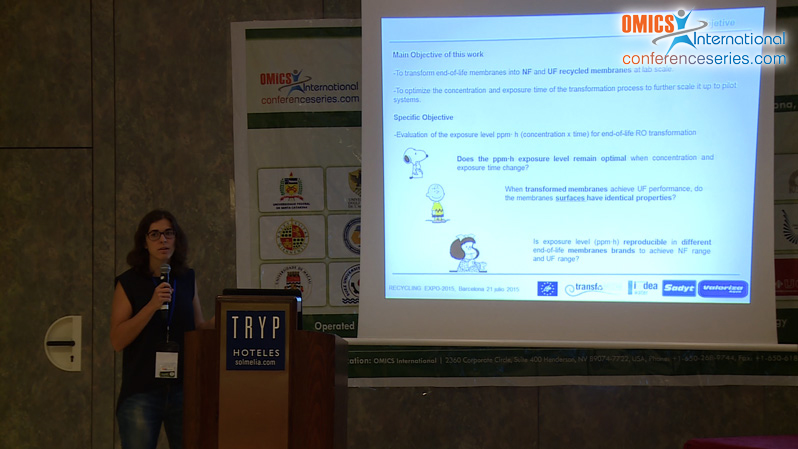
Raquel GarcÃa Pacheco
IMDEA Water Institute, Spain
Title: Evaluation of the ppm-h concept for end-of-life RO membrane into recycled NF and UF membranes
Biography
Biography: Raquel GarcÃa Pacheco
Abstract
Thin Film Composite polyamide membranes have been worldwide used in desalination andwater recycling plants. However, once their lifespan is exhausted they are often disposed into the landfills which are the last priority according to the main pyramidal waste management principlesof the European Directive 2008/98/EC on waste (prevention, preparing for re-use, recycling, recovery and disposal). The present study, as part of the LIFE+ ENV/ES/000751TRANSFOMEM European project, investigates the transformation of end-of-life membranesthat were treating brackish water or seawater to be recycled as nanofiltration (NF) and ultrafiltration (UF) membranes. Such process is a simple, low energy, surface modification technique based on polyamide chemical attack by free chlorine. The ppm-h concept it was evaluated which implies different exposure times of end-of-life membranes at diverseconcentrations of sodium hypochlorite (NaOCl) solutions. All the transformation experimentswere carried out at alkaline conditions (pH>10) at room temperature and without stirring. Two different exposure doses were set in order to obtain nanofiltration and ultrafiltration membrane performances. The membrane performances were evaluated filtering synthetic brackish water containing NaCl, MgSO4 and dextrose. The surface properties of the transformed membranes were also analyzed by scanning electron microscopy (SEM) and attenuated total reflection-Fourier Transform Infrared (ATR-FTIR). Results showed that ppm-h concept is not valid for allcases

